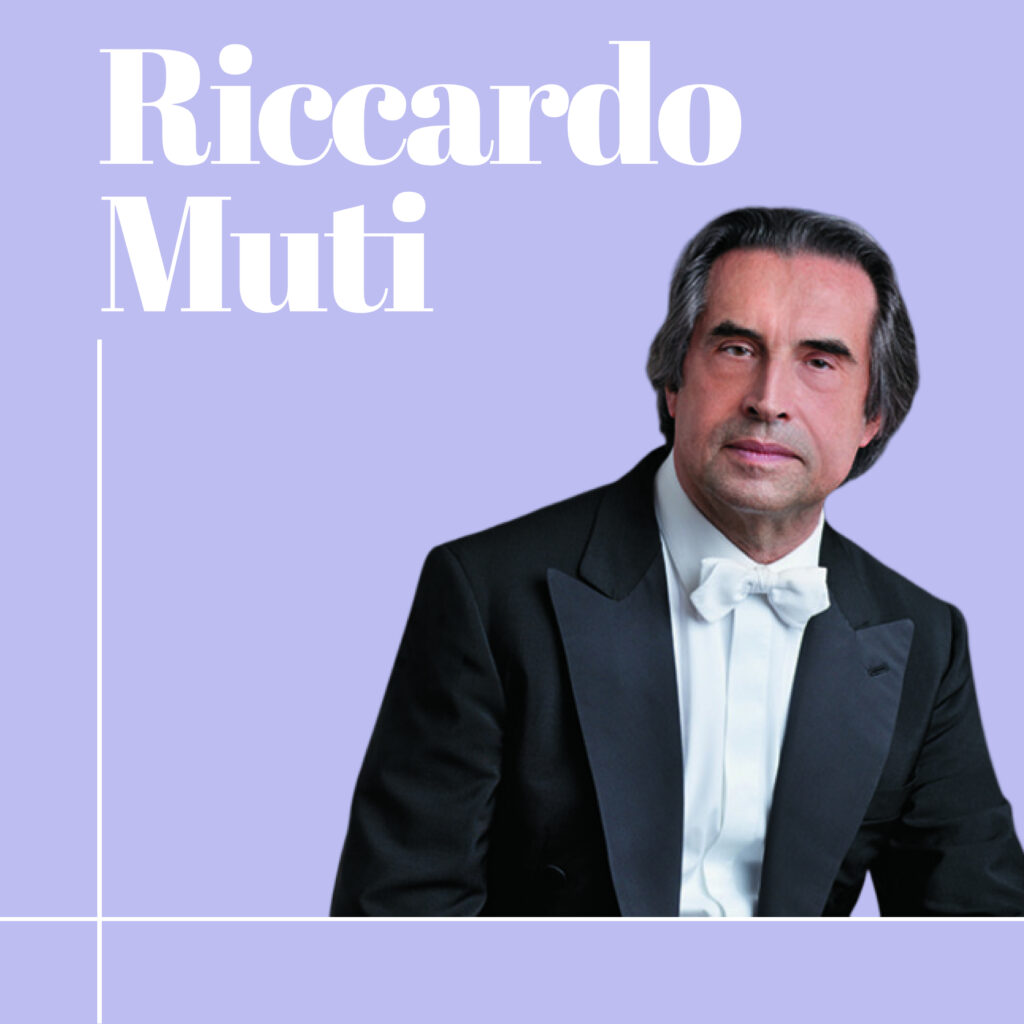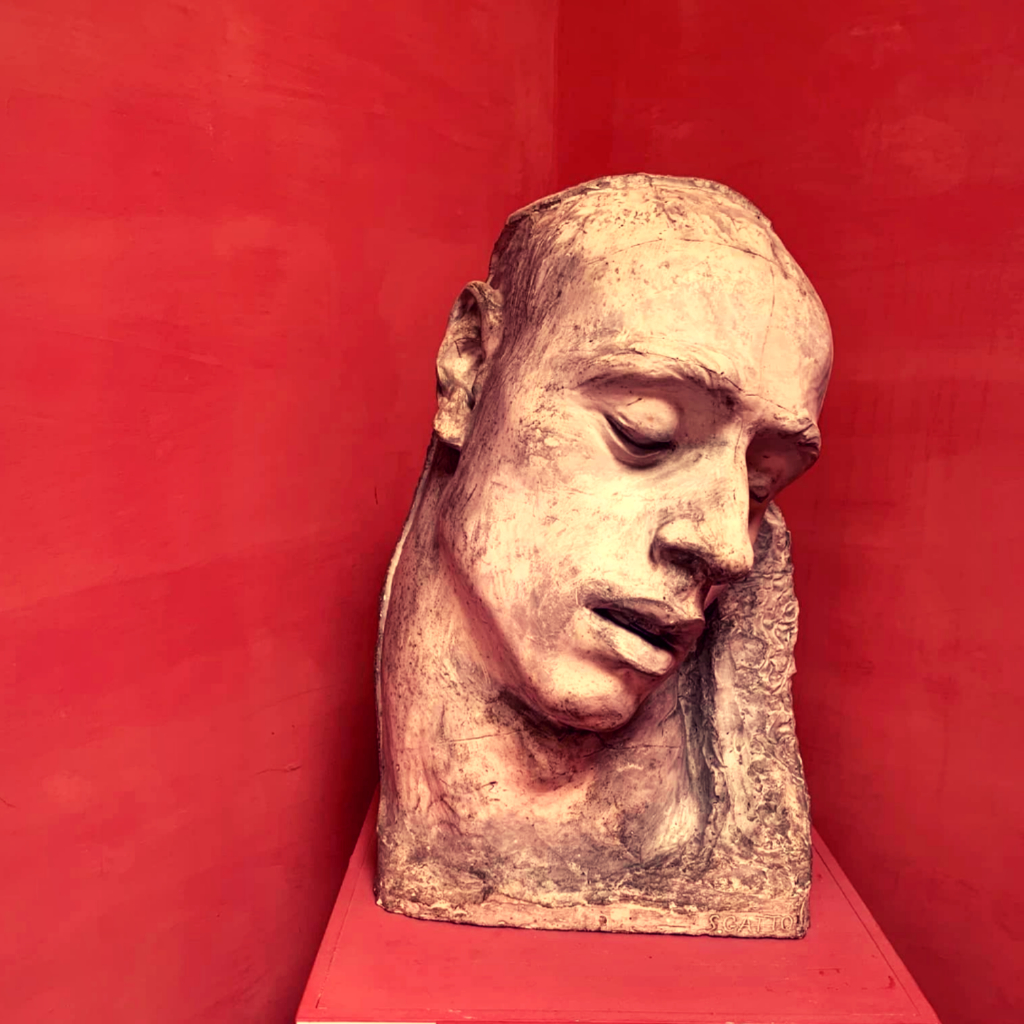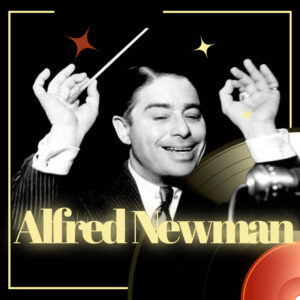
He first came to the attention of critics and the public in 1967, when he won the Guido Cantelli Conducting Competition – by unanimous vote of the jury – in Milan. In 1968, he became principal conductor of the “Maggio Musicale Fiorentino,” a position he held until 1980. In 1971 Muti was invited by Herbert von Karajan to conduct at the Salzburg Festival, the first of many occasions, which led in 2020 to a celebration of fifty years of artistic collaboration with the Austrian festival. During the 1970s, he was chief conductor of the London’s Philharmonia Orchestra (1972 to 1982) succeeding Otto Klemperer. From 1980 to 1992, he inherited the position of Music Director of the Philadelphia Orchestra from Eugene Ormandy.
Over the course of his extraordinary career, Riccardo Muti has conducted the most important orchestras in the world: from the Berlin Philharmonic to the Bavarian Radio Symphony Orchestra, from the New York Philharmonic to the Orchestre National de France, as well as the Vienna Philharmonic, an orchestra to which he is linked by particularly close and important ties, and with which he has appeared at the Salzburg Festival since 1971.
When Muti was invited to conduct the Vienna Philharmonic’s 150th anniversary concert, he was presented with the Golden Ring by the orchestra, a special sign of esteem and affection, awarded only to a few select conductors. After 1993, 1997, 2000, 2004 and 2018, in 2021 Riccardo Muti conducted the Vienna Philharmonic in the New Year’s Concert for the sixth time. For the recording of this concert, in August 2018 he was awarded the Double Platinum on the occasion of his concerts with the same orchestra at the Salzburg Festival.
In April 2003, the French national radio channel, France Musique, broadcast a “Journée Riccardo Muti” consisting of 14 hours of his operatic and symphonic recordings made with all the orchestras he has conducted throughout his career. On December 14th of the same year, he conducted the long-awaited opening concert of the newly renovated “La Fenice” Opera House in Venice. Radio France broadcast another “Riccardo Muti Day” on May 17th, 2018, when he conducted a concert at Auditorium de la Maison de la Radio.
The Symphony of Psalms is a three-movement choral symphony and was composed by Igor Stravinsky in 1930 during his neoclassical period. The work was commissioned by Serge Koussevitzky to celebrate the 50th anniversary of the Boston Symphony Orchestra. The symphony derives its name from the use of Psalm texts in the choral parts.
According to Stravinsky, the commission for the work came about from “a routine suggestion” from Koussevitzky, who was also Stravinsky’s publisher, that he write something “popular” for orchestra without chorus. Stravinsky, however, insisted on the psalm-symphony idea, which he had had in mind for some time. The choice of Psalm 150, however, was in part because of the popularity of that text. The symphony was written in Nice and Echarvines, which was Stravinsky’s summer home in those years. The three movements are performed without a break, and the texts sung by the chorus are drawn from the Vulgate versions in Latin. Unlike many pieces composed for chorus and orchestra, Stravinsky said that “it is not a symphony in which I have included Psalms to be sung. On the contrary, it is the singing of the Psalms that I am symphonizing.”
Although the piece was written for the Boston Symphony Orchestra, the world premiere was actually given in Brussels by the Société Philharmonique de Bruxelles on December 13, 1930, under the direction of Ernest Ansermet. The American premiere of the piece was given soon afterwards by Koussevitzky and the Boston Symphony Orchestra, with the chorus of the Cecilia Society (trained by Arthur Fiedler) on December 19, 1930. The first recording was made by Stravinsky himself with the Orchestre des Concerts Straram and the Alexis Vlassay Choir at the Théâtre des Champs-Élysées in Paris on February 17 and 18, 1931. “The choir, throaty, full-blooded, darkly, inwardly passionate, sing with liturgical conviction and intensity in a memorable performance.”
The second movement is a double fugue in C minor, and uses as text Psalm 40, verses 2, 3, and 4. The first fugue theme is based on the same four-note cell used in the first movement, and begins in the oboe in measure one.



